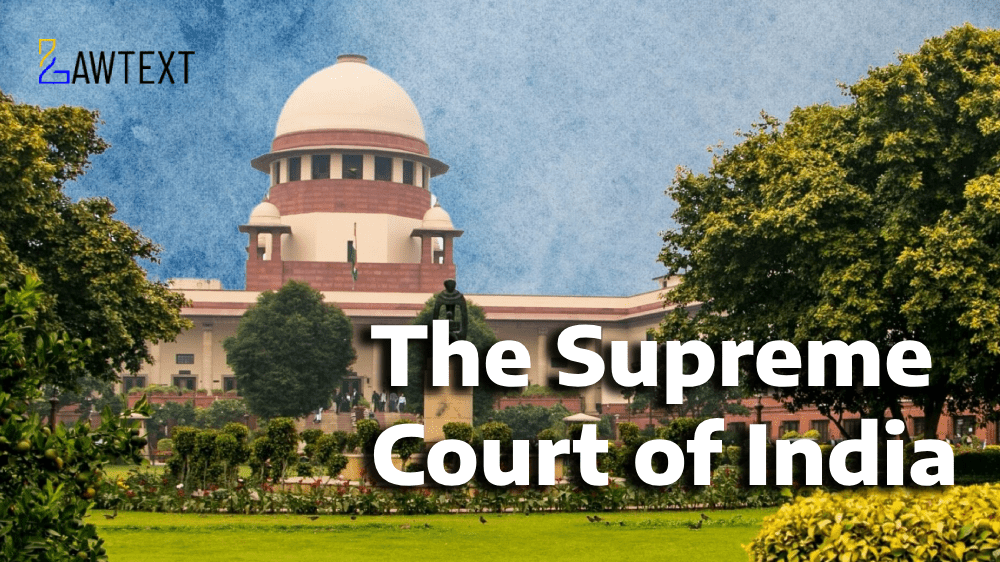Supreme Court Considers Consolidation of Sureties for Multiple Bail Orders Across Different States. Balancing Fundamental Rights and Judicial Requirements in Bail Proceedings.

CASE NOTE & SUMMARY
The Supreme Court heard a Writ Petition under Article 32 of the Constitution, filed by PETITIONER, seeking a directive to consolidate personal bonds and sureties executed in one FIR to cover eleven other bail orders across different states. The petitioner argued that he was unable to furnish separate sureties in all cases due to financial constraints and personal hardships. The Court examined the legal framework governing bonds and sureties under the Code of Criminal Procedure (CrPC) and considered the balance between the petitioner's fundamental rights under Article 21 and the judicial requirements for ensuring the presence of the accused during trial.
1. Background:
- Nature of Petition: The petitioner, Girish Gandhi, filed a writ petition under Article 32 of the Constitution, seeking consolidation of sureties across multiple bail orders.
- Case Overview: The petitioner was involved with White Blue Retail Pvt. Ltd., facing 13 FIRs across six states for alleged offenses of fraud and breach of trust under various sections of the Indian Penal Code (IPC).
- Primary Issue: The petitioner's main plea was the consolidation of sureties across multiple bail orders to avoid the financial burden and difficulty of providing separate sureties in each case.
2. Legal Framework:
- Sections of CrPC: The Court referred to Sections 441 (Bonds and Sureties) and 446 (Procedure when Bond is Forfeited) of the CrPC, which govern the conditions and obligations related to bail bonds and sureties.
- Definition of Surety: The Court discussed the definition of "surety" and its importance in ensuring the presence of the accused during trial.
3. Petitioner’s Arguments:
- Inability to Furnish Sureties: The petitioner argued that he was financially strained and unable to furnish separate sureties in each case.
- Family Hardships: The petitioner also cited personal hardships, including the need to care for his physically handicapped wife, son, and aged mother, as reasons for seeking consolidation of sureties.
4. State's Counterarguments:
- Requirement for Separate Sureties: The respective states opposed the petitioner's plea, arguing that each FIR requires separate sureties to ensure accountability.
- Legal Precedents: The states contended that a surety bond in one case cannot be extended to other cases involving different FIRs.
5. Court’s Analysis:
- Balancing Fundamental Rights and Judicial Requirements: The Court acknowledged the petitioner's difficulty in finding multiple sureties and emphasized the need to balance the requirement for sureties with the petitioner’s fundamental rights under Article 21.
- Precedents Considered: The Court referred to previous judgments, including Satender Kumar Antil vs. Central Bureau of Investigation & Anr. and Hani Nishad @ Mohammad Imran @ Vikky vs. The State of Uttar Pradesh, where similar issues were addressed.
6. Court’s Observations:
- Excessive Bail Conditions: The Court reiterated that imposing excessive and onerous conditions on bail could defeat the purpose of granting bail itself.
- Practical Challenges in Securing Sureties: The Court recognized the practical challenges faced by the petitioner in securing sureties from different states, especially with conditions requiring local sureties.
7. Conclusion:
- Need for Proportionality: The Court emphasized the need for a proportional approach that protects the fundamental rights of the accused while ensuring their presence during trial.
- Further Directions: The Court did not outright grant the petitioner's request but indicated the need for a careful consideration of the conditions imposed in each case, particularly in light of the petitioner's specific circumstances.
ISSUE OF CONSIDERATION
GIRISH GANDHI VERSUS THE STATE OF UTTAR PRADESH & ORS.
Citation: 2024 LawText (SC) (8) 223
Case Number: WRIT PETITION (CRIMINAL) NO. 149 OF 2024
Date of Decision: 2024-08-22
Case Title: GIRISH GANDHI VERSUS THE STATE OF UTTAR PRADESH & ORS.
Before Judge: [B.R. GAVAI J. , K. V. VISWANATHAN J.]
Appellant: GIRISH GANDHI
Respondent: THE STATE OF UTTAR PRADESH & ORS.

